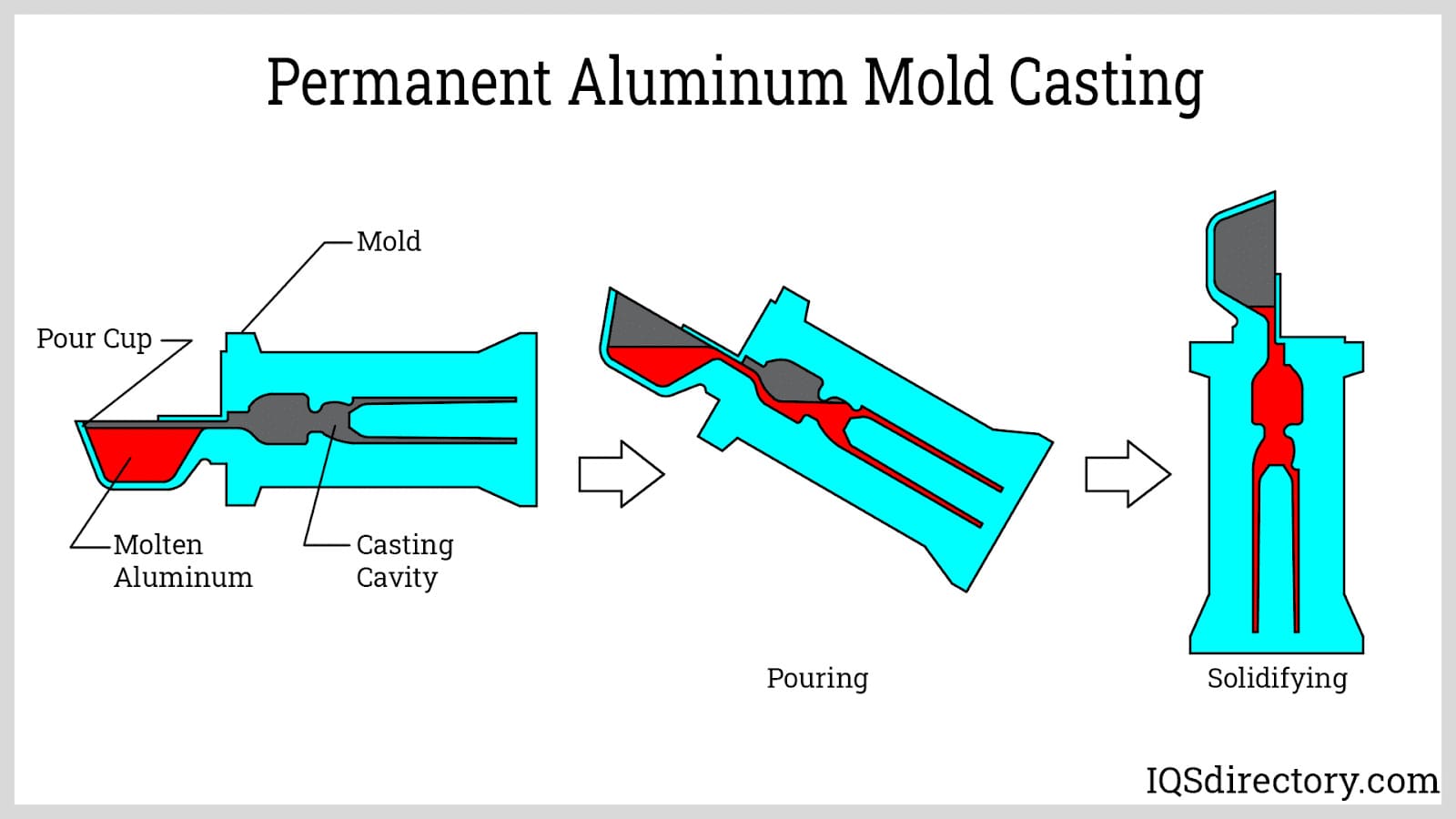Some Known Facts About Alcast Company.
Some Known Facts About Alcast Company.
Blog Article
Our Alcast Company Diaries
Table of ContentsAlcast Company Fundamentals ExplainedThe Definitive Guide to Alcast CompanyThe 4-Minute Rule for Alcast CompanySome Known Factual Statements About Alcast Company The 9-Minute Rule for Alcast CompanyThe 4-Minute Rule for Alcast Company
The refined distinction hinges on the chemical material. Chemical Comparison of Cast Light weight aluminum Alloys Silicon promotes castability by reducing the alloy's melting temperature level and improving fluidness throughout spreading. It plays a vital role in permitting intricate mold and mildews to be loaded precisely. In addition, silicon adds to the alloy's toughness and use resistance, making it beneficial in applications where resilience is essential, such as auto parts and engine elements.It also improves the machinability of the alloy, making it easier to refine into completed items. This way, iron contributes to the total workability of light weight aluminum alloys. Copper enhances electrical conductivity, making it helpful in electrical applications. It additionally boosts deterioration resistance and contributes to the alloy's overall toughness.
Manganese contributes to the stamina of aluminum alloys and enhances workability. Magnesium is a lightweight element that offers toughness and effect resistance to aluminum alloys.
Getting The Alcast Company To Work
Zinc enhances the castability of light weight aluminum alloys and helps regulate the solidification procedure during casting. It enhances the alloy's stamina and solidity.

The primary thermal conductivity, tensile toughness, return toughness, and elongation vary. Among the above alloys, A356 has the greatest thermal conductivity, and A380 and ADC12 have the most affordable.
Our Alcast Company Diaries

In accuracy casting, 6063 is fit for applications where detailed geometries and high-quality surface area coatings are critical. Instances include telecommunication enclosures, where the alloy's remarkable formability enables sleek and cosmetically reference pleasing layouts while maintaining architectural honesty. Likewise, in the Lighting Solutions sector, precision-cast 6063 elements create sophisticated and efficient illumination components that need detailed shapes and great thermal performance.
It leads to a better surface area coating and better rust resistance in A360. The A360 exhibits premium prolongation, making it suitable for facility and thin-walled elements. In accuracy spreading applications, A360 is appropriate for markets such as Customer Electronics, Telecommunication, and Power Devices. Its enhanced fluidness allows for elaborate, high-precision components like smartphone housings and interaction device real estates.
The smart Trick of Alcast Company That Nobody is Talking About
Its unique homes make A360 a valuable selection for precision casting in these markets, boosting item sturdiness and quality. Aluminum alloy 380, or A380, is a commonly used spreading alloy with several distinct attributes. It offers excellent castability, making it a perfect selection for accuracy casting. A380 shows excellent fluidity when molten, guaranteeing complex and comprehensive mold and mildews are accurately recreated.
In precision spreading, aluminum 413 beams in the Consumer Electronics and Power Devices industries. This alloy's premium corrosion resistance makes it an outstanding selection for outside applications, guaranteeing resilient, resilient products in the stated sectors.
Getting My Alcast Company To Work
The aluminum alloy you select will substantially influence both the casting procedure and the buildings of the final item. Due to the fact that of this, you should make your choice carefully and take an enlightened technique.
Figuring out the most ideal aluminum alloy for your application will mean evaluating a broad array of features. The first classification addresses alloy attributes that influence the production process.
Some Known Factual Statements About Alcast Company
The alloy you choose for die spreading straight impacts numerous facets of the casting procedure, like how easy the alloy is to deal with and if it is vulnerable to casting problems. Hot splitting, also known as solidification cracking, is a regular die casting defect for light weight aluminum alloys that can cause inner or surface-level rips or splits.
Particular light weight aluminum alloys are extra vulnerable to warm breaking than others, and your option must consider this. It can damage both the actors and the die, so you should look for alloys with high anti-soldering buildings.
Rust resistance, which is currently a notable attribute of aluminum, can differ considerably from alloy to alloy and is an important particular to take into consideration depending on the environmental conditions your product will certainly be revealed to (aluminum casting manufacturer). Put on resistance is another home generally looked for in aluminum products and can set apart some alloys
Report this page